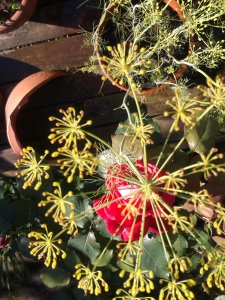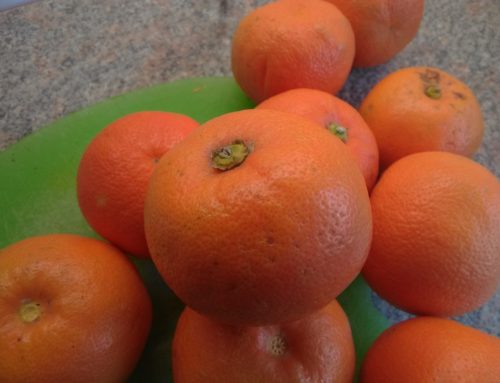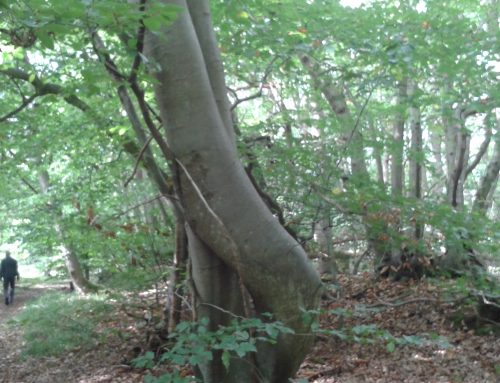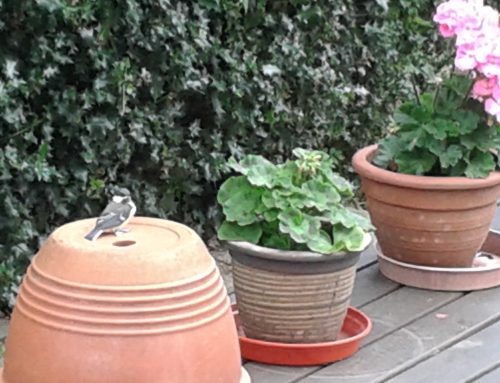Just in from gardening, tackling the massively overgrown rockery at the front of the house, pruning what wisteria I can reach, and greeting neighbours. It’s Saturday and a steady procession were on their way down to the local post office – lucky us to still have one – and stopped to chat.
The RHS website has a 90 second instruction video on summer pruning of wisteria. The magic number is five – snip the whippy bit five shoots along from the woody bit. For winter pruning, it’s two. And then, lo and behold, in spring, the house will be spectacularly decorated in cascades of mauve flowers. It seems like a big job but it gets done and there’s pleasure in the intimacy – the Mr Whippys filling the bin and the revelation of the wisteria’s own patterns of being. There’s a house in a neighbouring street that’s virtually disappeared under a vast nest of unpruned wisteria and I imagine its inhabitant surrounded by whippy stems intruding into every room.
The garden here is too big for me. I can’t really manage it and it’s a bit out of control. That feels like a lesson though. The word ‘management’ is everywhere which suggests to me that it is a kind of global fantasy as ultimately, there’s very little in life that can be ‘managed’. It’s a fairly recent word in the language, coming from the Italian and the word for the control of horses, related to ‘manus’ for hand.
Gardening seems to be a big metaphor for ideas of management and control, and the converse: surrendering both in favour of the pleasures of manual labour, ‘manus’ again, and the wonder that comes from intimate engagement. Mary Oliver’s poem The Summer Day is wonderful at conveying that astonishment. And you can be busy and blessed too.
Heaven is indeed in the flowers – look at the roses. This rose, I mean. The one growing behind some fennel that is sending up umbels of little yellow stars. I even have a grudging admiration for what I think is a kind of berberis that has, whilst I haven’t been looking, crept all over the wall, putting down tenacious roots.
Mary Oliver’s poem is similarly invasive – Google returns 13.6 million results. One characteristic though of a ‘good’ poem for poetry therapy, is that it is possible to keep coming back to it, in different seasons, from different perspectives. Poetry Therapy, like gardening, is iterative. Just like Saturdays, working in the garden, neighbours going down the hill and up the hill, the same but different, talking about the weather then hurrying to catch the post as they’ve probably been doing for the fifty years since this house was built.
2 Comments
Leave A Comment
You must be logged in to post a comment.












Hi Kathleen – here are some thoughts on gardening. A x
I think I’d call it un-gardening!